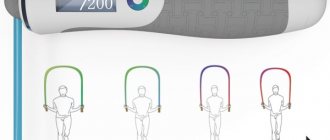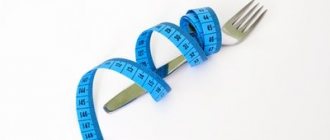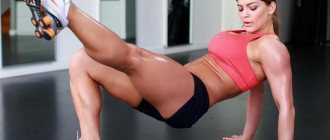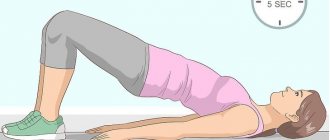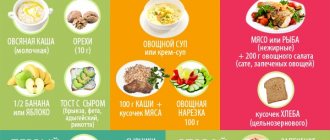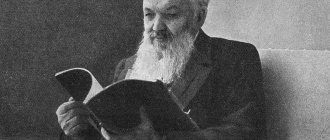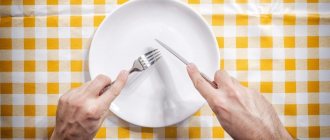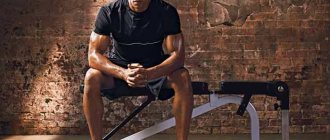Why does the workout end with a strong appetite?
Many who are just starting to hone their figure complain that before the workout is over, they already want to have something to eat. At the same time, they try their best to endure it, because it seems that otherwise the efforts in the gym will be in vain.
One of the reasons is an unsettled diet . Deciding to lose weight at all costs, you buy a gym membership and begin to intensively perform all the exercises you can, don’t miss a single group class and literally crawl home. And I want to eat. This is the wrong scheme.
To avoid feeling very hungry after a workout, you need to eat 2 hours or an hour before it. Then hunger will arise forty or even ninety minutes later.
When can you eat after strength training?
After training, eating should be no earlier than 30-40 minutes later. During this time, the body uses your fat deposits and internal reserves as nutrients, which helps with weight loss and staying in shape. If you start eating immediately after training, the effect will be minimal.
After your first protein meal 40 minutes after training, you need to eat a full meal in the next 2 hours.
Wrong time to exercise
Let's figure out who trains on an empty stomach:
- those who choose to study in the morning,
- those who go to classes after work,
- who decided that this was the right thing to do, because it would help them lose excess weight faster.
Let us immediately note that such training is not only not useful, but even harmful.
- Let's imagine situation number one. Morning running. You haven’t eaten for about eight to ten hours anyway, it’s clear that after a run your appetite will be simply brutal. And many people already wake up with a feeling of emptiness in their stomach. How can you go for a run instead of breakfast and expect that hunger will not arise?
- Situation number two. You go to classes immediately after finishing your work day. That is, you haven’t eaten for four to six hours. We will not delve into all the processes that occur in the body at this time and are activated during exercise. Let’s just say that since from about the twentieth minute the body begins to feel a lack of glucose, by the time the lesson ends it will require you to replenish your reserves.
What are the benefits of training on an empty stomach? The most dangerous thing is that you want not just to eat something, but to eat something harmful, sweet, in huge quantities.
Work on mistakes
In order not to get the opposite effect to the expected one, you need to eat before training.
- In the morning, at least drink a glass of freshly squeezed juice. It is digested once or twice and gives your body the necessary supply of glucose.
- After work - at the very end of the working day, before going to the fitness club, eat porridge or some fruit rich in carbohydrates. For example, banana.
When you feel hungry after exercising
An increase in appetite during training is a normal physiological reaction of the body. When you exercise, you expend energy, and your body strives to replenish calories and restore balance by sending you hunger signals. The situation is different with psychological hunger. Most people overestimate calorie expenditure - they think that they spent a lot of calories during training and now they can not limit themselves. Let's figure out why you feel hungry after exercise and how to deal with it.
Reasons for increased appetite
As mentioned above, the reasons can be physiological and psychological.
Physiological reasons:
- You spent energy during training, and the body strives to restore balance - this is natural and should not interfere with weight loss.
- You're doing too much cardio (working out for at least an hour every day). Excess aerobics creates considerable stress, which introduces an imbalance in the hormonal system. Stress increases the production of the stress hormone cortisol and the hunger hormone ghrelin, but reduces the level of the satiety hormone leptin.
- You're not eating enough calories. Perhaps your diet is so poor that you simply do not get enough. In addition, low-calorie diets disrupt hormonal levels, making it much more difficult to control your appetite and lose weight.
- You don't sleep much. Lack of sleep reduces leptin levels, increases ghrelin and cortisol, and reduces insulin sensitivity. With a lack of sleep, the body tries its best to store as much energy as possible, increasing hunger and reducing calorie expenditure.
Psychological reasons:
- You overestimate your caloric expenditure and feel that it is unfair to limit yourself.
- You mistake ordinary fatigue after a workout or thirst for hunger.
- You can't tell the difference between real hunger and food cravings.
According to studies involving athletes, moderate-intensity exercise does not increase hunger, and a balanced diet helps to better control appetite.
What helps you stay full?
If we consider the diet as a whole, it must meet the following criteria:
- Adequate daily caloric intake. There are simple formulas to calculate the daily requirement.
- Convenient number of meals. If frequent and small portions do not fill you up, then eat less often.
- Proteins, fats and carbohydrates in every meal. A balanced meal should contain at least 20 g protein, 10 g fat and 30 g carbohydrates.
- Adequate amounts of protein, fat and fiber in the diet. If you exercise regularly, then you need to receive 1.5-2 g of protein and 0.8-1 g of fat per kilogram of weight in your diet, eat vegetables and greens every day. Research shows that a combination of protein, fiber and fat helps control appetite.
- Solid food is better than liquid food. Liquid calories from smoothies, kefir, and juices are easily absorbed, and therefore the feeling of hunger after such a meal comes very quickly.
- Proper nutrition before and after training. Before and after training, you especially need proteins and complex carbohydrates. They nourish muscles for a long time and maintain normal sugar levels, which helps control appetite.
- Moderate intensity of strength training and a sufficient amount of cardio. You should not crawl out of the hall or live in it. If you want to burn subcutaneous fat, then 2-4 strength training sessions and 150-300 minutes of cardio per week are enough.
- Attentiveness to your feelings. If you have a big breakfast, and in the evening the feeling of hunger makes you overeat, then maybe you should distribute your daily caloric intake so that you are comfortable?
It is important to talk about awareness. When you feel hungry, ask yourself: Do I really feel hungry or is it a craving? What's behind it? Stress, boredom, fatigue, habit? Or maybe I want to reward myself for a successful workout or a lost kilogram? Pampering after a busy week? Don't be afraid of psychological work on yourself. Ask yourself questions and answer them honestly.
Examples of successful snacks
When you have managed to sort out your feelings and understand that this feeling in your stomach is the same hunger, it’s time to think about the right snack. Remember that solid foods and a combination of proteins, fats, and fiber fill us up? Therefore, the popular recommendation about an apple for a snack is no longer necessary.
Easy, quick and healthy snacks
- Vegetable sticks with Greek yogurt sauce;
- Crispbread with chicken meat and herbs;
- Crispbread with curd cheese;
- Low-fat cottage cheese with berries and nuts or moderate-fat cottage cheese with berries or fruit;
- Salad of non-starchy vegetables and chicken breast;
- Whole grain toast with egg;
- Baked apple with cottage cheese.
Calculate your snack portion based on your daily caloric intake. Remember that snacks should be smaller than your main meals, but should also contain proteins, fats and carbohydrates.
Author: Ekaterina G., nutritionist, fitness blogger (especially for) Copying this article in whole or in part is prohibited.
Too cold
Working out in cool temperatures also makes you hungry. These are outdoor activities when it is 10 to 15 degrees Celsius. Or classes in the pool, the same water aerobics. In such cases, energy is spent not just to move, but also to keep warm.
That’s why, after swimming a lot in the pool or doing aqua aerobics in a group, you want to eat something high-calorie and fatty. Who said that hunger is not a problem? An auntie, and what a one: with an excellent appetite. Provided that you exercise in the cold. Then you will want to throw a whole feast after such a load.
The way out of this situation is this. If you work out outdoors, then hudeem-bez-problem.ru recommends dressing warmly. If it's a swimming pool, then don't let the workout last longer than half an hour.
Why do you not want to eat after fitness?
Neurons in the brain that regulate appetite sense body temperature.
Exercising not only burns calories, but also helps curb your appetite. (Photo: skeeze / Pixabay.com)
‹
›
Those who are actively involved in sports or fitness know that after you've worked hard on the machines, you don't feel like eating for a very long time. Obviously, after exercise, some mechanism is activated that suppresses appetite and hunger. But what kind of mechanism is this?
Jae Hoon
) and his colleagues from the Albert Einstein College of Medicine came up with the idea that it’s all about an increase in body temperature - after all, we warm up quite a lot due to physical activity.
Thermoregulation, like appetite, depends on the hypothalamus, a small region in the brain that controls a wide variety of physiological processes. For each process there is its own group of nerve cells, but perhaps the hypothalamic neurons that regulate feeding behavior also sense temperature?
Cells that suppress appetite are found in the arcuate nucleus of the hypothalamus; their peculiarity is that they are able to directly sense hormones and other substances that float in the blood (the brain, as we know, is protected from direct contact with the blood by the blood-brain barrier).
To see if these neurons could respond to heat, the researchers treated them with the alkaloid capsaicin, which is found in hot peppers and which specifically targets heat receptors (which is why we feel peppers burn). In an article in PLoS Biology
it is said that two-thirds of the arcuate nucleus cells sensed capsaicin - that is, they have heat receptors and are active.
From experiments with cells we moved on to experiments on mice. When animals were injected with a burning substance directly into the hypothalamus, in the area of these same neurons, the mice lost their appetite for 12 hours - they continued to eat, but ate noticeably less than usual. If heat receptors on neurons were blocked, then capsaicin did not suppress appetite.
When mice were run on a treadmill for 40 minutes, their temperature rose rapidly (including in the arcuate nucleus of the hypothalamus) and remained elevated for an hour - and the mice after “fitness” also ate half as much as mice that did not exercise. But if mice with thermal receptors on their neurons turned off ran on a treadmill, then they did not have any changes in appetite - physical exercise did not affect their appetite.
That is, the hypothesis was confirmed: brain cells that suppress appetite actually respond to heat. (You can explain why this is necessary, for example, this way: great physical activity occurs when you have to run away from someone, and the desire to eat a hearty meal would be inappropriate here.)
Most likely, the same mechanism remains with us, and here we can come up with different options for how to use it for weight loss. Although what can you come up with here - you just need to go to the gym.
High intensity training
The feeling of extreme hunger after an intense workout is due to the fact that you spend a lot of glycogen from a large amount of exercise and increased heart rate.
The way out of this situation is measure in everything or compromises. The measure is a workout from an hour to an hour and a half, not too intense, at medium “powers”. Or a compromise: to have a snack immediately after class, take fruit, cottage cheese or boiled meat in a container.
What to eat after training if you are losing weight?
The main principle of losing weight is to consume fewer calories than you burn. In order to maintain this balance, it is worth eliminating high-fat foods from your diet and reducing the number of calories you consume.
Here is a list of the best foods that you can and should eat after training when losing weight:
- Boiled chicken contains amino acids and easily digestible protein. Helps quickly restore muscle tissue, and due to B vitamins, accelerates metabolism;
- Turkey is rich in protein, contains vitamins A, E and microelements. Improves the process of fat breakdown;
- Seafood – the content of amino acids, vitamins and minerals makes seafood almost irreplaceable. Accelerate metabolism, improve fat removal, stabilize the functioning of the cardiovascular system;
- Rice is a source of complex carbohydrates, vitamin B and minerals. Saturates the body, eliminating the feeling of hunger;
- Beans are a low-calorie product with a high protein content, about 22 grams per 100 grams of product;
- Low-fat cottage cheese is a good option for restoring muscle tissue. Contains natural protein;
- Mineral water, freshly squeezed juice, green tea without sugar - all this is suitable as a source of liquid.
- Turkey pilaf
